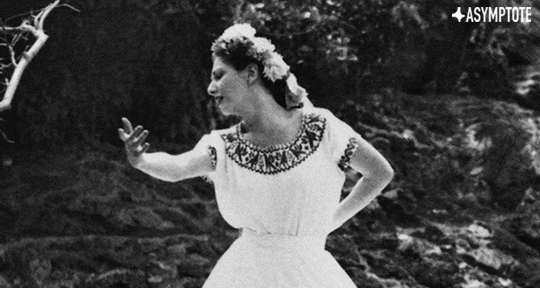Yesterday’s Translation Tuesday featured Pablo Neruda’s “Coming of the Rivers” sequence in an astonishing and previously unpublished translation by Waldeen. How did Waldeen capture the voice and tone of Neruda’s poetry so accurately, and why have such elegant translations remained in obscurity for almost seventy years? Poet and translator Jonathan Cohen, a close friend of Waldeen, explains the history—and the secrets—behind her Neruda translations.
Waldeen von Falkenstein (1913–1993)—known as a dancer and writer by her first name alone—has yet to receive the full recognition she deserves for her work as a translator of Pablo Neruda’s poetry. The poetic achievement of her translations and their influence on American poetry merit more attention. Waldeen’s elegant renderings of poems that would form Neruda’s epic masterpiece, Canto General (1950), translations that she published in the late 1940s and early 1950s, introduced Neruda and his image-driven poetics to many readers. Among them were poets like the Beats looking for alternatives to the prevailing formalist mode of verse, who found in him, through her, a model poet.
Waldeen achieved fame in Mexico as the founder of modern dance there. In 1956, Diego Rivera, one of the principal gods of Mexican art, lavished praise on Waldeen for her contribution to Mexican culture (“In each of her dance movements, she offered our country a jewel”). His tribute to her appeared in a major newspaper of Mexico, where he went beyond his accolades of her dance work to also celebrate her as a poet-translator: “I can bear witness to this not only by the intensity of emotion I felt in the verses of this beautiful and admirable woman, but through the testimony, as well, of our Walt Whitman of Indo-America, Pablo Neruda, who wrote to her, deeply moved, after she translated poetry of his into English: ‘Waldeen, thank you, for your poems of my poems, which are better than mine.’ ”

